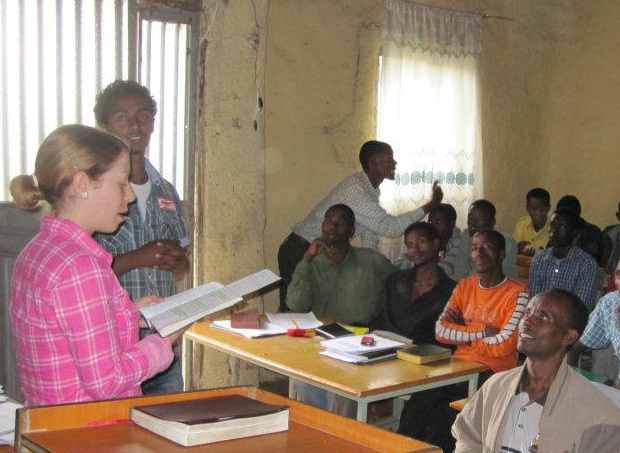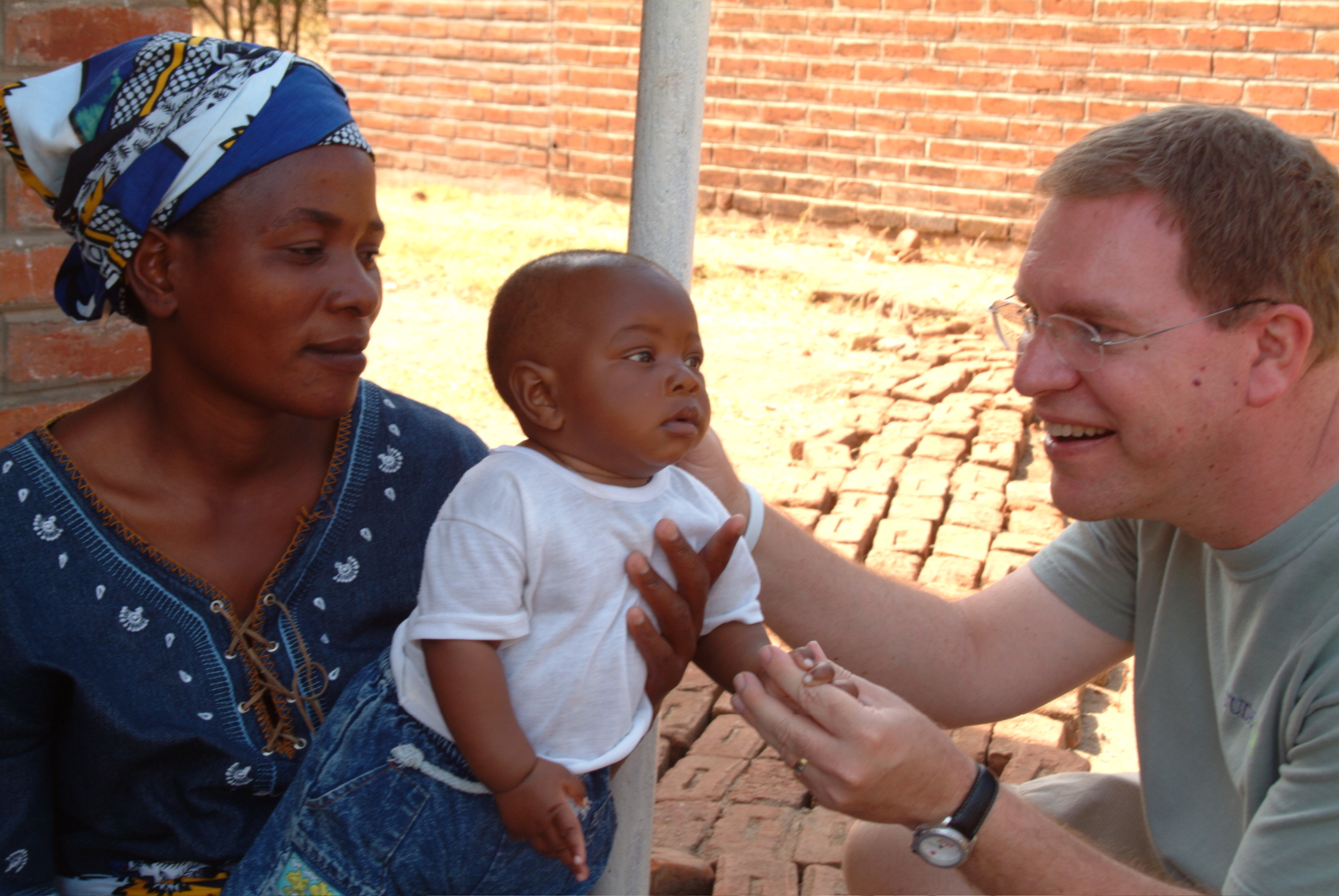By Jeff Brumley
After a mission trip to Ethiopia in 2007, a group of Baptist pastors from East Texas launched a multi-church mission effort dedicated to everything from digging wells and latrines to working in schools and churches to train local leaders. But there’s one type of work the dozen or so churches, including one in Missouri, avoid.
“We don’t do orphanages,” said Jim Palmer, strategy coordinator for The Ethiopia Aid Mission Network, or TEAM, and a member of First Baptist Church in Athens, Texas.
 Members of the network say they’ve realized what many full-time international missionaries have known for years: That in many cases the world’s 150 million Third World orphans are better served by their own families and communities than by orphanages.
Members of the network say they’ve realized what many full-time international missionaries have known for years: That in many cases the world’s 150 million Third World orphans are better served by their own families and communities than by orphanages.
And now those missionaries are trying to convince denominations, churches and individuals to shift their focus from supporting orphan homes in Africa and other war- and disease-torn regions to addressing the social, medical and economic conditions that leave millions of children vulnerable to homelessness and death.
‘It’s about walking alongside’
“The primary thrust is to strengthen families and communities,” said John Derrick, a former Cooperative Baptist field missionary and facilitator of the CBF’s newly launched Orphaned and Vulnerable Children Network.
Derrick and other leaders of the movement admit it won’t be easy convincing some to embrace the new focus because so many have “fallen in love” with the children they’ve helped during orphanage mission trips.
The key to change will be re-educating Western Christians about what it means – and doesn’t mean – to be long- or short-term missionaries, Derrick said.
“It’s not about us sweeping in and being the answer to all their problems,” he said. “It’s about walking alongside and serving with the local leadership who understand what the need is.”
Many orphans have families
There are cases when orphanages are needed, such as when vast numbers of children in a particular area are left without security and housing, Derrick said. But research and experience show that many of those children have at least one living parent or other family who either do not know where the child is or cannot afford to provide care.
It’s also common that Third World communities are willing to care for orphaned children if they could only afford to do so, Derrick said.
“Most people are shocked to learn that it is primarily poverty and life circumstances that keep kids from being put in a family context,” he said.
Also, children placed in orphanages usually are left to survive on their own when they reach their upper teens, and often fall prey to human traffickers and warlords.
Let ‘leaders be leaders’
Churches do not have to figure out on their own how to redirect their mission energies, said Kathleen Riordan, project coordinator, for the Better Care Network.
 The network is a coalition of major governmental and non-governmental agencies, including UNICEF, Save the Children and US Agency for International Development, seeking to address the medical, social and economic conditions that cause children to become orphaned. (Photo by Colleen Burroughs)
The network is a coalition of major governmental and non-governmental agencies, including UNICEF, Save the Children and US Agency for International Development, seeking to address the medical, social and economic conditions that cause children to become orphaned. (Photo by Colleen Burroughs)
It’s faith-based component is called the Faith to Action Initiative, which educates churches and other religious groups about best practices in dealing with vulnerable children.
The initiative provides a number of written resources churches and denominations can use to join the “community care” effort, said Derrick, who is a core member of the initiative and co-author of its instructional materials.
CBF is cooperating with the initiative through the Orphaned and Vulnerable Children Network it launched at the General Assembly in June.
The Better Care Network and Faith to Action operate on the idea that westerners cannot know what is best for African or other local populations, Riordan said. Instead, the goal is to provide connect churches and other groups in the U.S. with churches and other groups in Africa.
“One of the big mistakes was not letting local leaders be local leaders,” she said.
‘Kinship care’
Jon Singletary, a social work professor at Baylor University, has been sharing that concept with students for several years. He calls it “kinship care” because that puts the emphasis on supporting families and communities rather than orphanages.
Effective methods include Sunday school classes in America adopting Sunday school classes overseas, and likewise for congregations and groups of congregations, he said.
In this way water and sanitation projects and feeding and medical missions can be seen as tools for reducing poverty and disease in the long term, he said.
“It’s one community supporting another,” he said. “It’s preventative because it keeps kids out of orphanages by strengthening local churches.”
‘Being quality doers’
Because the approach relies on local church and other community leaders in the areas being helped, American churches avoid being scammed or wasting money on unnecessary projects, said Jay Abernathy, senior pastor at First Baptist Church in Palestine, Texas, and one of the original members of the East Texas-based Ethiopian aid network.
“We seek to partner with local Ethiopian organizations as well as doctors and pastors,” Abernathy said. “And we work with the families in the local schools – we come alongside and partner.”
Another participant said the East Texas effort, done in cooperation with Buckner International, isn’t about quick successes, but about long-term change.
“Our strategy isn’t just handouts and money, but to be intimately involved with the churches there in efforts that will last for our lifetimes,” said Kyle Henderson, pastor of First Baptist Church of Athens, Texas.
Palmer, a former Southern Baptist International Mission Board missionary, said churches must think beyond quick trips that produce more pats on the back than tangible aid.
“Our challenge is how do we become not just goers, but quality doers?”
